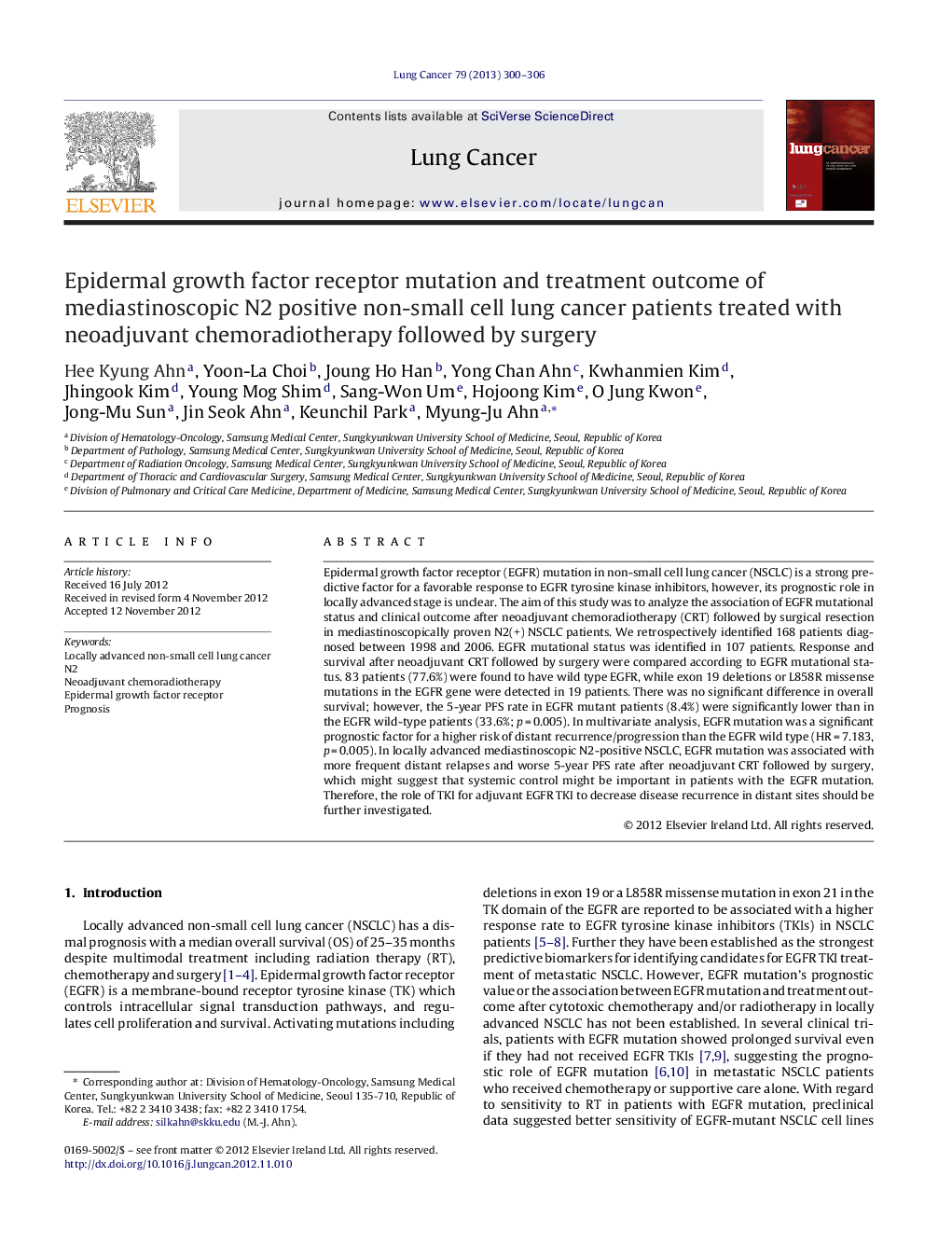| Article ID | Journal | Published Year | Pages | File Type |
|---|---|---|---|---|
| 2141166 | Lung Cancer | 2013 | 7 Pages |
Epidermal growth factor receptor (EGFR) mutation in non-small cell lung cancer (NSCLC) is a strong predictive factor for a favorable response to EGFR tyrosine kinase inhibitors, however, its prognostic role in locally advanced stage is unclear. The aim of this study was to analyze the association of EGFR mutational status and clinical outcome after neoadjuvant chemoradiotherapy (CRT) followed by surgical resection in mediastinoscopically proven N2(+) NSCLC patients. We retrospectively identified 168 patients diagnosed between 1998 and 2006. EGFR mutational status was identified in 107 patients. Response and survival after neoadjuvant CRT followed by surgery were compared according to EGFR mutational status. 83 patients (77.6%) were found to have wild type EGFR, while exon 19 deletions or L858R missense mutations in the EGFR gene were detected in 19 patients. There was no significant difference in overall survival; however, the 5-year PFS rate in EGFR mutant patients (8.4%) were significantly lower than in the EGFR wild-type patients (33.6%; p = 0.005). In multivariate analysis, EGFR mutation was a significant prognostic factor for a higher risk of distant recurrence/progression than the EGFR wild type (HR = 7.183, p = 0.005). In locally advanced mediastinoscopic N2-positive NSCLC, EGFR mutation was associated with more frequent distant relapses and worse 5-year PFS rate after neoadjuvant CRT followed by surgery, which might suggest that systemic control might be important in patients with the EGFR mutation. Therefore, the role of TKI for adjuvant EGFR TKI to decrease disease recurrence in distant sites should be further investigated.
